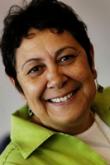'The Routledge Handbook of Critical Indigenous Studies is the first comprehensive overview of the rapidly expanding field of Indigenous scholarship. The book is ambitious in scope, ranging across disciplines and national boundaries, with particular reference to the lived conditions of Indigenous peoples in the first world.
'The contributors are all themselves Indigenous scholars who provide critical understandings of indigeneity in relation to ontology (ways of being), epistemology (ways of knowing), and axiology (ways of doing) with a view to providing insights into how Indigenous peoples and communities engage and examine the worlds in which they are immersed. Sections include:
- Indigenous Sovereignty
- Indigeneity in the 21st Century
- Indigenous Epistemologies
- The Field of Indigenous Studies
- Global Indigeneity
'This handbook contributes to the re-centring of Indigenous knowledges, providing material and ideational analyses of social, political, and cultural institutions and critiquing and considering how Indigenous peoples situate themselves within, outside, and in relation to dominant discourses, dominant postcolonial cultures and prevailing Western thought.'
Source: Publisher's blurb.

